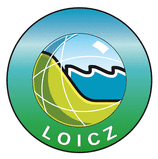Objectives of the WISDOM Project
Challenges in the Mekong Delta Area
The Mekong Delta in Vietnam offers natural resources for several million inhabitants. However, a strong population increase, changing climatic conditions and regulatory measures at the upper reaches of the Mekong lead to severe changes in the Delta. Therefore, decision makers, planners and local authorities have to face new challenges. Extreme flood events occur more frequently, drinking water availability is increasingly limited, soils show signs of salinization or acidification, species and complete habitats diminish. All these problems call for an optimized, integrated resource management. For this purpose detailed knowledge and hydrologic,-, hydraulic-, ecologic-, and sociologic factors must be available. Furthermore, the cooperation of national institutes as well as national, regional and local authorities needs to be strengthened.
Goal of the Project
It is the goal of WISDOM to jointly (Vietnamese and German partners) design and implement an Information System for the Mekong Delta, containing information from the fields of hydrology, sociology, information technology and earth observation. The integration of such data will enable the end-user of the system to perform analyses on very specific questions; and thus will supply the end-user with a tool supporting regional planning activities.
Approach
The design of the system puts the focus on the constant integration of available and newly generated data from all different disciplines. This enables user-oriented analyses and custom designed querying to develop sustainable solutions in the field of resource management. Possible applications of the system are:
- Monitoring of floods and droughts
- Evaluation of flood and drought risk, damage potential and actual damages
- Analyses of water quality, pollution and sediment load
- The improvement of flood prediction via remotely sensed precipitation information
- Detailed adaptation of surface and sub-surface discharge models
- Information of landcover- and landuse changes
- Observation of settlement development, surface sealing and population growth
A thorough integration of natural and social sciences is of utmost importance for the development of the Water Information System, since it has to depict not only changes of the natural sciences- or bio-physical field affecting the water household, but also changes of socio-economic processes affecting the people living in the Mekong Delta.
A further – and the most important – base for the project’s success is the close collaboration between Vietnamese and German scientists within the bilateral cooperation. For later decision makers it is crucial that all information gathered within the project will be available in an interrelated and easily accessible. Furthermore, education and capacity building is a key to grant the usage of the information system after the project’s end.
The WISDOM project has been triggered through a joint initiative of the Ministry of Science and Technology (MOST) in Vietnam and the German Ministry of Education and Research (BMBF) in Germany in August 2005. After a first initial preparation phase, which lasted until summer 2006, the joint proposal for a first phase was then submitted in July 2006. Project work started in spring 2007 and for its first phase lasted until spring 2010. After proven success the project went into a second phase which started October 2010 and will last until fall 2013!
The Vietnamese-German project consortium consists of many partner from the Vietnamese and German side with strong expertises in all the different fields.
Please refer to this page for further information on all participating organisations.
Altogether, over 60 scientists from Germany and Vietnam and 15 PhD students from Vietnam and Europe are working within the WISDOM project. The work of the PhD students is coordinated by the UNU-EHS in Bonn – however, the individual PhD students are working at different German partner organizations, such as ZEF, GFZ, INRES, etc. The overall project is coordinated by the DFD-DLR, and on the Vietnamese side by the SIWRR. An increased linkage between the consortium members on both sides shall be reached through joint field campaigns, capacity building activities, annual meetings and joint publications.
Transfer to other regions
An Information System is a software-architecture, which allows to feed in data of any kind (remote sensing data, GIS data, digital maps, in-situ data, interpolated point measurements etc,), to organize and maintain this data and – most important – to query the data in a problem-oriented way. An Information System thus consist of a data entry portal, a database in which the data is stored and organized, a visualization tool to display the data and a query mask, which allows for sophisticated analyses with respect to a certain question.
One example: the database contains flood masks, which were derived from remote sensing data. Furthermore, the database contains a landcover/landuse classification of the same region. A query that could be performed now is e.g.: How much of the agriculturally used land has been flooded? Or: How many percent of the settled area were affected?
Depending on data availability very complex queries can be performed, which allows further solving of planning-relevant questions and which thus can support decision-making. An Information system can be transferred to other regions as well with relatively simple adaptations. Provided that the database is fed with data from another area and that some querying algorithms are slightly modified the System can also support planning in other regions of the world.




